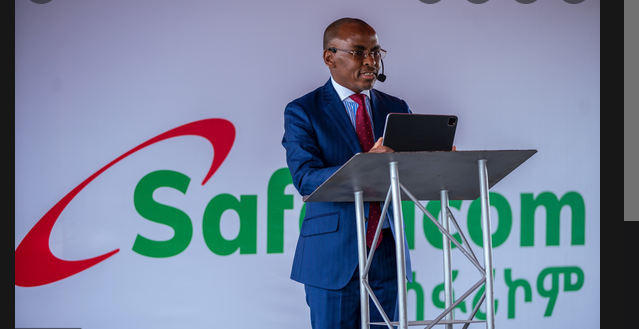Safaricom has officially launched operations in Ethiopia, signing up 200,000 subscribers in weeks.
The telco has made entry into capital Addis Ababa after a pilot test in 10 regional cities. Its 2G, 3G and 4G mobile networks can now be accessed in 11 cities.
The telco has laid out plans to launch services in 25 cities by April 2023 to meet the 25 percent population in compliance with the requirements of its licence. The firm said it will ride on data offerings and smart technologies such as machine learning as it strives to deepen its roots in the market.
The company says it is also seeking a mobile money licence in a bid to carry out peer to peer cash transfer, business payments and extend credit to individuals.
“We hit the 200,000 milestone two days ago and that was just a few towns. Our initial customers want data and that is why we are using that as our competitive angle,” noted Safaricom Telecommunications Ethiopia chief executive Anwar Soussa.
“We have learned a lot from the pilot and as we move towards Addis Ababa we are comfortable with the system integration.”
Safaricom made entry into Ethiopia under a consortium comprising Vodacom Group, Sumitomo Corporation and British International Investment (formerly CDC Group).
On August 29, the firm carried out the first network pilot in Dire Dawa City and followed up with the second test in Harari Region in eastern Ethiopia from September 1. The third pilot began on September 7 in Oromia Region, starting in Haramaya City.
Safaricom is launching a Greenfield operation in Ethiopia partly supported by a deal with Ethio Telecom to share towers and fibre infrastructure.
Safaricom has been planning the Ethiopia launch for over a year but has been slowed down by delays in signing infrastructure sharing deal with Ethio Telecom and slow pace of setting up their own towers due to Covid-19 supply chain dislocations.
Network sharing is a strategic solution for new entrants into a market already dominated by an incumbent operator or in mature developed markets.
Parties have to agree on charges, load-bearing capacity of towers, space within sites, tilt and height of the antenna and adverse effects on quality of service (QoS) when antennas are combined and differing standards employed by the equipment vendor.
The company says it has hired 650 employees for the new operations, comprising 200 expatriates and 450 local workers, including 50 fresh graduates.
The consortium has spent over $850 million (Sh102.6 billion) acquiring the Ethiopian license and $300 million (Sh36.2 billion) as capital expenditure this year.
It has pledged to spend over Sh300 million annually over the next three years to meet network coverage targets under the Ethiopian license.
The telco recently secured Sh31.2 billion debt and equity financing from World Bank’s private investment arm, the International Finance Corporation (IFC) towards funding the Ethiopia operations.
IFC’s equity investment stands at Sh19.3 billion ($160 million) while the debt component is up to Sh12 billion ($100 million).



